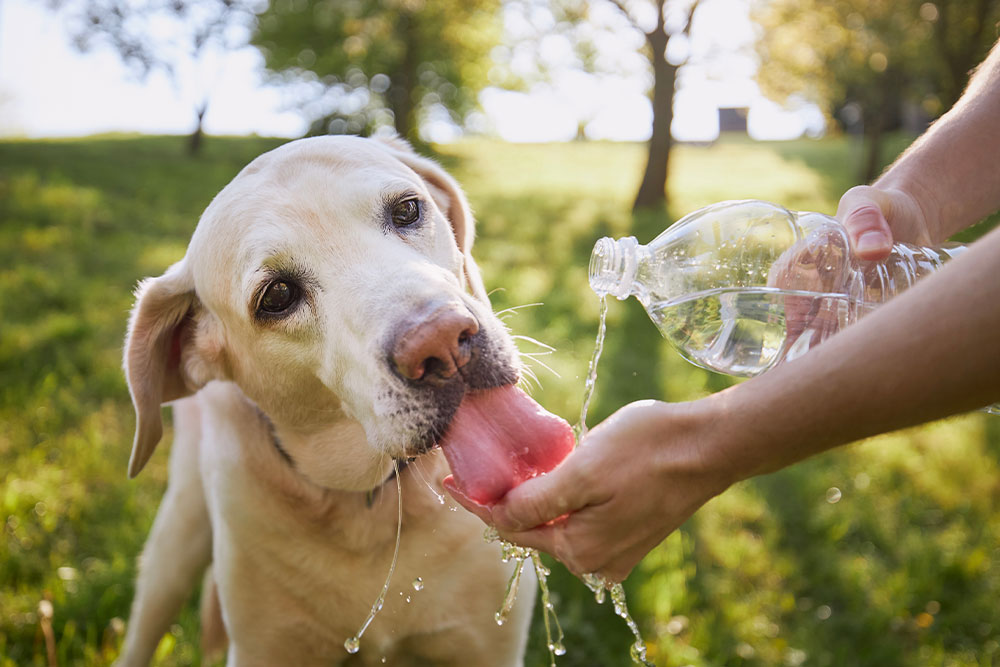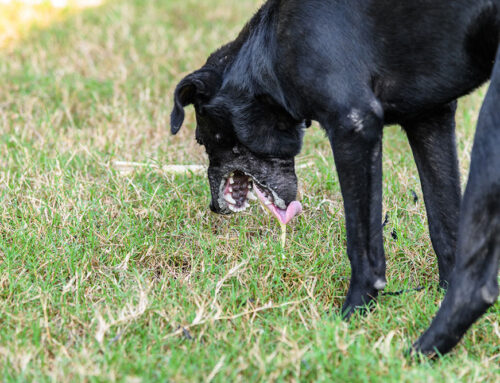Pet Hydration in Reno’s Climate: Why It Matters and How to Keep Your Pet Healthy
At Peak Pet Urgent Care in Reno, Nevada, we know how much your pet means to you. Whether you’re caring for a senior cat, a high-energy dog, or a new puppy, ensuring they stay properly hydrated—especially in our hot, dry climate—is one of the most important things you can do for their health.
Hydration isn’t just about filling a water bowl—it’s about helping your pet’s body function at its best. Yet many pet owners are unsure how much water their pet needs, what dehydration looks like, or when to seek emergency care. That’s where we come in. Let’s break it down together.
Why Pet Hydration Is So Important
Water makes up more than half of your pet’s body weight. It plays a vital role in:
- Regulating body temperature
- Digesting food and absorbing nutrients
- Flushing out toxins and waste
- Cushioning joints and supporting organ health
When your pet doesn’t get enough water, even mild dehydration can affect their energy, mood, and long-term health. Severe dehydration can escalate into a life-threatening condition in a matter of hours—especially in hot or dry weather like we often experience in Reno.
What Causes Dehydration in Pets?
Dehydration happens when pets lose more fluids than they take in. That imbalance can be caused by:
- Insufficient water intake — due to stress, illness, or limited access to clean water
- Vomiting or diarrhea — which quickly depletes fluids
- Kidney disease or diabetes — these chronic conditions affect water regulation
- Hot or dry weather — common in Nevada’s summer months. For seasonal strategies, explore Beyond the Basics: Heat Safety Tips for Pet Owners.
- Dry food diets — which lack the natural moisture content of wet food
- Medications — such as diuretics or steroids, which can increase fluid loss
Some pets are simply pickier drinkers. Cats, in particular, may prefer running water or dislike certain bowls. Recognizing these habits can help you support hydration proactively.
Recognizing the Signs of Dehydration in Dogs and Cats
Knowing the early warning signs can help you intervene before dehydration becomes dangerous. Look for:
Mild to Moderate Signs:
- Lethargy or unusual tiredness
- Dry or sticky gums
- Loss of skin elasticity (gently pinch skin on the back of the neck—if it doesn’t snap back quickly, that’s a concern)
- Sunken eyes
- Decreased appetite or reduced urination
Severe Signs:
- Vomiting or diarrhea
- Collapse or weakness
- Panting excessively without heat exposure
- Fast heart rate or rapid breathing
- Seizures or unresponsiveness
If you’re unsure whether your pet is dehydrated, try this Home Exam for a Sick Dog or give us a call. When in doubt, it’s always best to be cautious.
How We Diagnose Dehydration at Peak Pet Urgent Care
When you bring your pet to us, we’ll start with a thorough exam to assess hydration levels. This includes:
- Skin turgor test and gum moisture evaluation
- Vital signs, such as temperature, heart rate, and respiratory rate
- Bloodwork, to assess kidney function and check for electrolyte imbalances
- Urinalysis, to measure concentration and detect underlying conditions
In complex cases, we may recommend imaging like X-rays or ultrasounds to check for blockages, internal bleeding, or other causes of fluid loss.
Treatment Options: What Happens Next
Treatment depends on how advanced the dehydration is:
Mild Cases
- Encouraging oral fluid intake
- Offering pet-safe flavored water or ice cubes
- Mixing water or broth into meals
- Transitioning to wet food to increase water content
Moderate to Severe Cases
- Subcutaneous (SQ) fluids: Administered under the skin at our clinic
Learn how to give SQ fluids at home - IV fluid therapy: For severe dehydration or shock, hospitalization and intravenous fluids may be needed for rapid rehydration
We also work to treat any underlying illness that may be contributing to dehydration—whether it’s gastrointestinal, metabolic, or environmental.
Why Timely Treatment Matters: The Risks of Waiting
Dehydration isn’t just uncomfortable—it’s dangerous. If left untreated, it can lead to:
- Kidney damage or failure
- Electrolyte imbalances, causing irregular heart rhythms or seizures
- Hypovolemic shock, a critical emergency
- Complications from chronic disease, such as diabetes or renal disease
For more on how kidney issues affect hydration and care, see Chronic Kidney Disease – MSU VDL and IRIS Kidney Guidelines.
Think it might be an emergency? Visit Help! Is This a Pet Emergency? or ASPCA Emergency Care Guide.
Practical Tips to Prevent Dehydration at Home
Prevention is the easiest way to protect your pet—especially during hot Reno summers. Here’s how:
- Always offer clean, cool water in multiple locations around your home
- Use pet fountains to encourage drinking, especially for cats
- Offer ice cubes as a treat or add pet-safe broth to their water
- Switch to wet food, or mix water into dry kibble
- Avoid intense exercise in peak heat and always provide shade and ventilation
FAQs: What Pet Owners Ask Us Most
Q: How much water should my pet drink daily?
A general rule is 1 ounce per pound of body weight, but this varies with diet, age, and health. Ask us for personalized guidance.
Q: Is excessive thirst a concern?
Yes—drinking more than usual may signal diabetes, kidney disease, or Cushing’s. Schedule an exam if you notice this behavior.
Q: Can cats go without drinking for long periods?
They shouldn’t. Cats are naturally poor drinkers, so adding moisture to meals is often necessary.
Q: When should I see a vet for dehydration?
Any signs of lethargy, dry gums, sunken eyes, or vomiting should prompt a call or visit. Don’t wait—early intervention saves lives.
You Don’t Have to Figure It Out Alone
At Peak Pet Urgent Care, we’re here to help you care confidently—no matter what life throws at you or your pet. Dehydration is serious, but it’s also very treatable when caught early. If something feels “off,” let us take a look. We offer same-day care and personalized treatment plans to help your pet get back on track.
Located in Reno and proudly serving our local community with urgent, compassionate, expert care.
Contact us today or Meet Our Team to learn more.








Leave A Comment